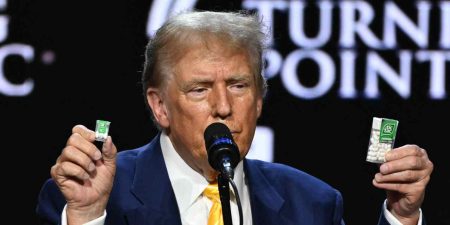By Noel Randewich
(Reuters) – China’s frail growth could weigh on companies with exposure to the world’s second-largest economy, including Apple (NASDAQ:), big chipmakers and luxury retailers as they report quarterly results in the next few weeks.
Wall Street is bracing for a steep drop in second-quarter U.S. earnings, with profit margins expected to be hurt by U.S. inflation and weaker spending. Both U.S. and European companies with exposure to China could be hit by that economy’s sluggish growth as its post-COVID momentum has faltered rapidly.
China’s weak economic figures have weighed on its stock market, limiting the ‘s gain in 2023 to 2.6%, compared to the ‘s 18% increase.
“The post-zero COVID reopening has been disappointing by basically all measures in China, and the country’s hesitance to do broad-based consumer-facing stimulus is weighing on sentiment,” said Ross Mayfield, investment strategy analyst at Baird. “That’s going to have a spillover effect on the European and U.S. companies that are levered to the country.”
Early reports suggest that spillover is real. Swiss engineering group ABB said Thursday that its orders in China fell 9% in the second quarter, while Cartier-owner Richemont this week posted quarterly sales in Asia that were slightly lower than expected.
Richemont’s outlook for the year was “somewhat tempered” due to uncertainties in the Chinese macroeconomy that could affect both high-end and aspirational consumers, according to analysts at Bernstein who took part in a call with executives.
With China’s youth unemployment hitting a record 21% in June, young consumers may favor moderately-priced products and services and forgo big ticket purchases.
Tesla (NASDAQ:) sold a record 247,217 China-made vehicles in the second quarter, but on Wednesday reported lower gross margins due to the company’s price war with rivals, including Chinese competitors NIO and Xpeng (NYSE:).
Upcoming reports from NXP Semiconductors NV (NASDAQ:) on July 24 and Texas Instruments (NASDAQ:) on July 25 will serve as barometers for chip demand. China accounted for 36% of NXP’s revenue last year and half of Texas Instruments’ revenue.
Analysts estimate NXP reporting a 3.2% drop in quarterly revenue, with Texas Instruments’ revenue tumbling 16%, which would be its steepest drop since 2009, according to Refinitiv.
Credit Suisse Chief U.S. Equity Strategist Jonathan Golub said in a report this week that weakness in China that hampers U.S. growth might limit stock-market gains.
Corning (NYSE:) Inc, whose Gorilla glass is used in smartphones made by Apple and Samsung Electronics (OTC:), is expected on July 25 to report a 21% drop in adjusted net income, according to Refinitiv.
The specialty glass maker blamed “anticipated recession-level demand” for weak results in its previous quarterly report last April. China accounted for 30% of Corning’s net sales last year.
Apple, the world’s most valuable company, saw its sales in China dip 2.9% in its March quarter, worse than the 2.5% drop in overall revenue. Analysts on average see the iPhone maker’s revenue falling 1.7% to $81.6 billion for the June quarter, which would be the lowest in two years, according to Refinitiv.
Coffee maker Starbucks (NASDAQ:) in May reported quarterly results that beat estimates, powered by recovering demand in China.
U.S. companies that operate in China are also facing uncertainty related to trade disputes between Washington and Beijing, particularly in semiconductors. Chipmakers are currently grappling with Washington’s sweeping set of rules imposed in October to hobble China’s chip industry.
“Many companies’ manufacturing base is heavily Chinese-based, so are companies planning to diversify their manufacturing base or even ‘re-shore’ back to the US? If so, that’s presumably higher-cost and would weigh on gross margins,” said David Klink, senior analyst with Huntington Private Bank.
Read the full article here














